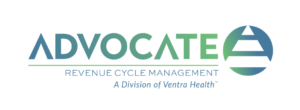This month, CMS announced that 21.3 million people signed up for the Affordable Care Act (ACA) Health Insurance Marketplace. This is nearly double the number of enrollees since 2020 when roughly 11 million people were enrolled. Among the 2024 enrollees, 16 million opted to renew their coverage while 5 million are new to the ACA Marketplace.
The spike in enrollments can be attributed to two main factors:
First, during the COVID-19 pandemic, states were prohibited from disenrolling people from Medicaid. However, in the last six months of 2023, it is estimated that 15 million Americans were automatically disenrolled from the Medicaid program. Half of the new ACA Marketplace sign-ups are from Americans who were previously enrolled in Medicaid. The number of people formerly covered by Medicaid who sign up for the ACA Marketplaces is expected to continue to rise. Many states are offering special enrollment periods to these individuals throughout the year.
Second, because of the Inflation Reduction Act (IRA), more people are eligible for ACA premium assistance subsidies. When the ACA was first passed, these subsidies were only available to people who earn up to four times the federal poverty level. The IRA removed this income threshold through 2025. These premium subsidies allow 80% of federal ACA Marketplace enrollees to pay $10 or less for their monthly premium.
We will be watching to see if ACA Marketplaces will attract the many Americans that have lost Medicaid coverage or if these people will remain uninsured.
The federal 2024 Marketplace Open Enrollment Period was open from November 1, 2023, to January 16, 2024, while state Marketplaces varied. ACA Open Enrollment is still open in four states and Washington DC until the end of January. The number of ACA Marketplace enrollees is expected to increase until the conclusion of the Enrollment Period. This number will also likely increase throughout 2024 due to the special enrollment periods for the large number of newly uninsured Americans.
ADVOCATE will share additional information with clients and friends as it becomes available on this and other Federal Health Policies.
Kirk Reinitz, President
